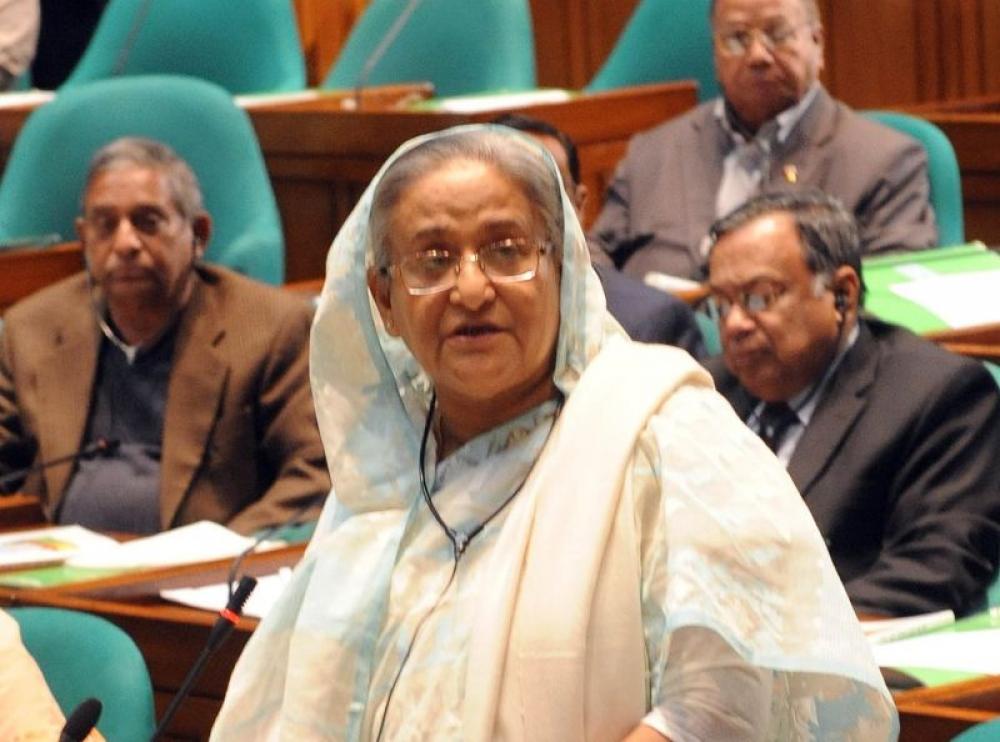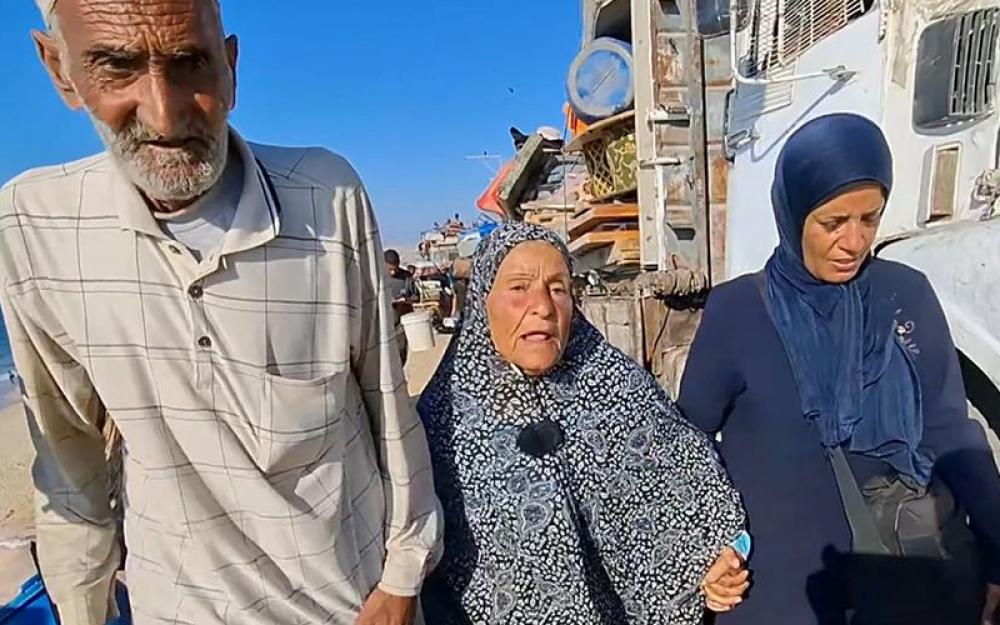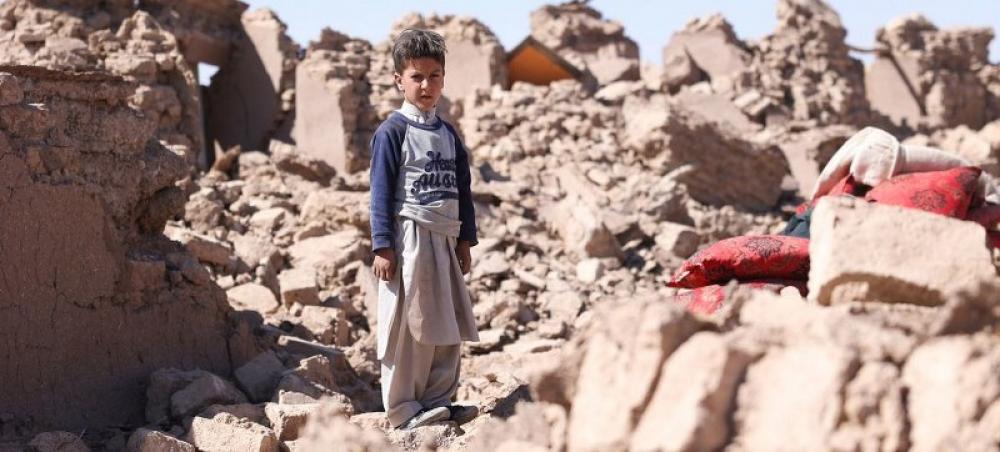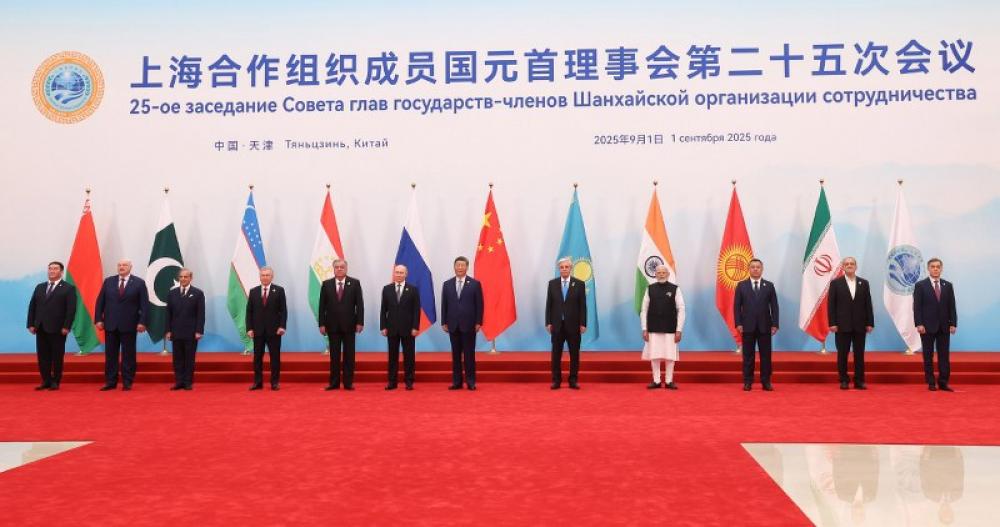Just Earth News | @justearthnews | 17 Nov 2025, 09:59 pm Print
 Sheikh Hasina
Sheikh Hasina Former Bangladesh PM Sheikh Hasina. Photo: PID Bangladesh
The United Nations on Monday said the verdict given by a Bangladeshi court against former PM Sheikh Hasina was an important moment for victims of the grave violations committed during the suppression of protests last year, but opposed the death penalty awarded to her in all circumstances.
Sheikh Hasina, the ousted Prime Minister of Bangladesh, was handed a death sentence by a special tribunal in Dhaka on Monday on charges of "crimes against humanity" linked to the 2024 student uprising.
The verdict came after months of proceedings that concluded Hasina ordered a violent crackdown on a student-led uprising last year — unrest that ultimately brought down her Awami League government.
After months of proceedings, the court convicted her on five counts: murder, attempted murder, torture, extermination, and other inhumane acts. Tried in absentia, Hasina remains in exile in India.
OHCHR described the verdict as “an important moment for victims of the grave violations committed during the suppression of protests last year.”
OHCHR has consistently called for proceedings which “unquestionably” meet international standards of due process and fair trial, the agency said in its response.
As part of its work, the office advocates for the universal abolition of the death penalty and over the years, multiple UN resolutions have been passed to protect the rights of those facing capital punishment.
The trial against Hasina was conducted in absentia and led to a capital sentence, making international standards “particularly vital,” the office continued.
UN human rights chief Volker Türk hopes Bangladesh will now move forward with a comprehensive process of “truth-telling, reparation and justice as the pathway to national reconciliation and healing.”
He called for calm “and for all to exercise restraint in response to these developments.”
February report
A UN-led investigation into alleged crimes found that 1,400 people – including many children – may have been killed while thousands were injured during July and August last year.
The violent protests that occurred for two months were one of the deadliest events recorded in the history of the country, which was formed in 1971, and eventually led to the ouster of Hasina and her government on August 5, 2024. Hasina fled to India.
Meanwhile, Rights and Risks Analysis Group (RRAG), a Delhi-based think-tank, described the verdict as a 'political farce'.
“The trial of Sheikh Hasina in abstentia violates the basic international human rights standards on fair trial. The Interim Government of Bangladesh did not follow up extradition of Sheikh Hasina with India. If Bangladesh had any evidence, it could have filed petition before the India’s Supreme Court seeking Hasina’s extradition. Any country that follows the rule of law has to seek extradition of the accused to meet fair trial standards, just the way India fought for extradition of Abu Salem before the Supreme Court of Portugal and is currently fighting for extradition of Mehul Choksi in the courts in Belgium. Because Bangladesh does not have any evidence and therefore, it decided to sentence Prime Minister Hasina and her colleagues in a Kangaroo Court trial," said Suhas Chakma, Director of the Rights and Risks Analysis Group.
- AI and Cloud Security emerge as the top cybersecurity investment priority for companies: PwC report
- ChatGPT breaks its habit! OpenAI confirms ending em dash trend
- Chinese sex offender jailed for life in UK
- World Quality Report 2025 revealed! OpenText and Capgemini reveal AI trends you can’t ignore
- Say Hello to ChatGPT Group Chats! OpenAI’s biggest update yet — Learn to use it fast!”






